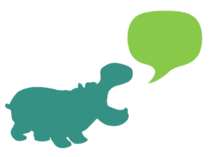The Crowdsourcing Consortium for Libraries and Archives (CCLA) organised an online seminar on Crowdsourcing 101: Fundamentals and Case Studies. I was invited to present an overview of 'fundamentals' in crowdsourcing in cultural heritage, including examples of successful projects, typical data input and output types, common tasks, and ways to think motivations for participation and levels of engagement. From the OCLC's page:
'This webinar will explore crowdsourcing techniques used increasingly by organizations and institutions seeking to gather vast amounts of new knowledge and participation from online contributors.
Crowdsourcing techniques are increasingly being utilized by organizations and institutions—including libraries and museums—seeking to gather vast amounts of new knowledge and participation from online contributors. In this fast-paced hour-long introduction, you'll get a handle on "Crowdsourcing Fundamentals" from leading voice in the field Mia Ridge, along with first-person accounts from two exemplar crowdsourcing projects (NYPL, Zooniverse). Learn the basics about implementing crowdsourcing techniques, securing funding, engaging users, and assessing the quality of crowdsourced data, as well as the advantages and challenges of utilizing crowdsourcing.
This webinar is part of the newly formed Crowdsourcing Consortium for Libraries and Archives (CCLA). Funded by the Institute of Museum and Library Services (IMLS), the goal of CCLA is to forge national/international partnerships to advance the use of crowdsourcing technologies, tools, user experiences, and platforms to help libraries, museums, archives, and more.'
Slides, video and chat notes are available on the OCLC's page.
If you found this post useful, you might be interested in my book, Crowdsourcing Our Cultural Heritage.
